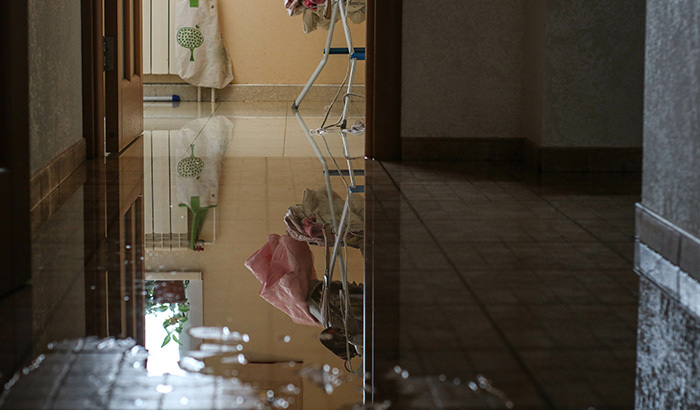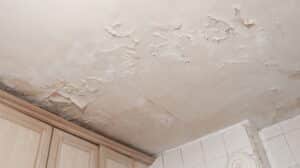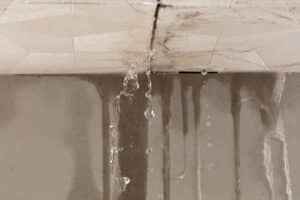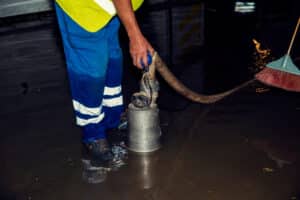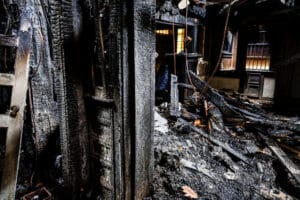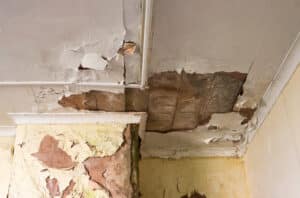We all know water damage is bad for our homes, but does it get worse with time? Or does all the water damage happen at once, leaving you with a giant mess to clean up? The truth is that water damage occurs in grades, and the sooner you get the damage cleaned up, the better you can restore your home.
Today’s blog covers water damage and how it gets worse over time. Since it does, you’ll probably want a timeline to know what you’re dealing with.
Keep reading to learn more!
What Causes Water Damage?
The best way to handle water damage is by taking preventative measures so that you never have to worry about it in the first place. However, that isn’t always realistic. Sometimes leaks or spills happen under your nose. After all, you can’t have eyes everywhere 24/7, nor can you control all the causes of water damage.
Issues like flooding, thunderstorms, sewage backups, and clogged gutters can all cause water damage. Of course, you can’t control the weather. Backups and clogged gutters aren’t always noticeable. Sometimes, it’s only when you have a severe backup that the problem becomes apparent.
The problem is when water makes contact with a surface; it’s when the water is left there instead of being cleaned up. It will sink into the surface, damaging it. And if left unchecked for long enough, mold will grow.
In reality, mold is the real enemy, but it doesn’t happen on its own. You have to have the right environment for mold to grow. A damp, dark place is mold’s favorite place to show up.
When Water Causes Damage
Water damage can happen overnight. Surfaces like hardwood floors absorb the water and get damaged as a result. You’ll quickly notice buckling planks. Other areas, like drywall, can hold up for a little longer since it has room to dry out, unlike flooring.
So, how quickly water damage occurs depends on the area, how much water is present, and how long the water has been there.
Water Damage Timeline
As we mentioned, the sooner you tackle water damage, the less damage there will be. We generally separate the timeline into three segments. Getting to the damage in the first 24 hours is ideal; the first week is better late than never; but over a week, and you’re looking at significant damage.
- First 24 Hours
The worst part about water damage is how quickly it soaks through everything around it. Anything within the water’s vicinity will get damaged, if not ruined. That includes sentimental items like books and photographs. It also includes soft furnishings and upholstery. Water will soak right through all of these items. - You’ll notice the damage when drywall, furniture, wooden doors, or window frames start to swell. Your paint or wallpaper will peel or blister. And you might notice issues with your electricity.
- That’s all within the first 24 hours, making it paramount to remedy water damage as soon as you spot it.
- The First Week
After the first 24 hours, the water damage will get worse with each passing hour. While you might not spot mold during the first day, it is certain to grow as time goes by. Enough mold, and you’ll have a biohazard on your hands.
If you have metal surfaces in your home, they could start corroding, and damage to wood surfaces and walls will only worsen. The more time that passes, the less likely it’s possible to repair your home. And, trust us, repairing your home is cheaper than replacing walls, surfaces, or furniture. - Over A Week
If it’s been over a week since the water first leaked or spilled, you for sure have a biohazard on your hands. Damage increases exponentially with every passing day. It’s unlikely that you’ll be able to repair anything.
You’ll probably need to replace most of your belongings, as they’ll either be rotting with mold or permanently destroyed. It’s essential to get a professional’s help with this level of mold damage to ensure that there’s no structural damage to your house that could render it dangerous to live in.
What to Do With Water Damage
So, you’ve learned about the causes of water damage and what you’ll be facing as time goes on, but what should you do in the moment when you detect mold in your home?
We recommend the following steps:
- Evacuate your family and pets from your home. Staying with a family member or friend is ideal in a circumstance like this. You don’t want anyone breathing in mold.
- Gather any undamaged valuables, and take them with you.
- Turn off your breaker box to cut off electricity in your home. Water damage and electricity do not mesh well! The exception to this is if there’s water around your breaker box. In that case, don’t go near it, or you could get electrocuted.
- Contact professionals if the water is black or gray, or if you know it came from sewage backup. You have a biohazard on your hands, so don’t attempt to clean it up on your own.
- Call your insurance company as soon as possible. Explain what caused the damage, and describe how severe it looks to you. The experts will be able to determine the full extent of the damage, and your insurance company will help arrange that.
Black Diamond Restoration Can Help.
You’ll want to call in the professionals if your home has suffered from water damage. A tiny spill instantly cleaned up will never cause a problem, but a patch of water damage left untouched can truly cause issues.
The experts at Black Diamond Restoration are here to repair, restore, or remove the damaged parts of your home. We’re equipped to handle extensive damage, so don’t hesitate to call us, no matter how bad the water damage in your home is.
Call us at 801.512.4194, or visit our website to learn more about us. We’ll be happy to answer any questions you may have. Repair your home today with Black Diamond Restoration.

